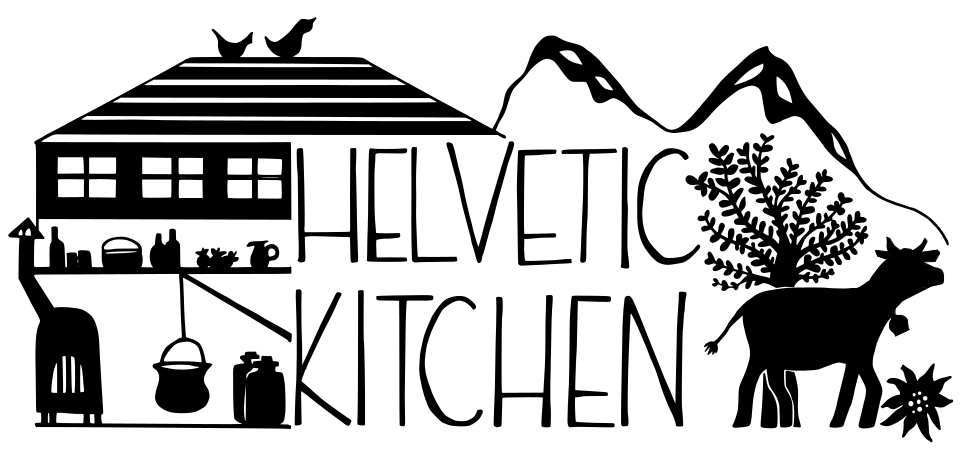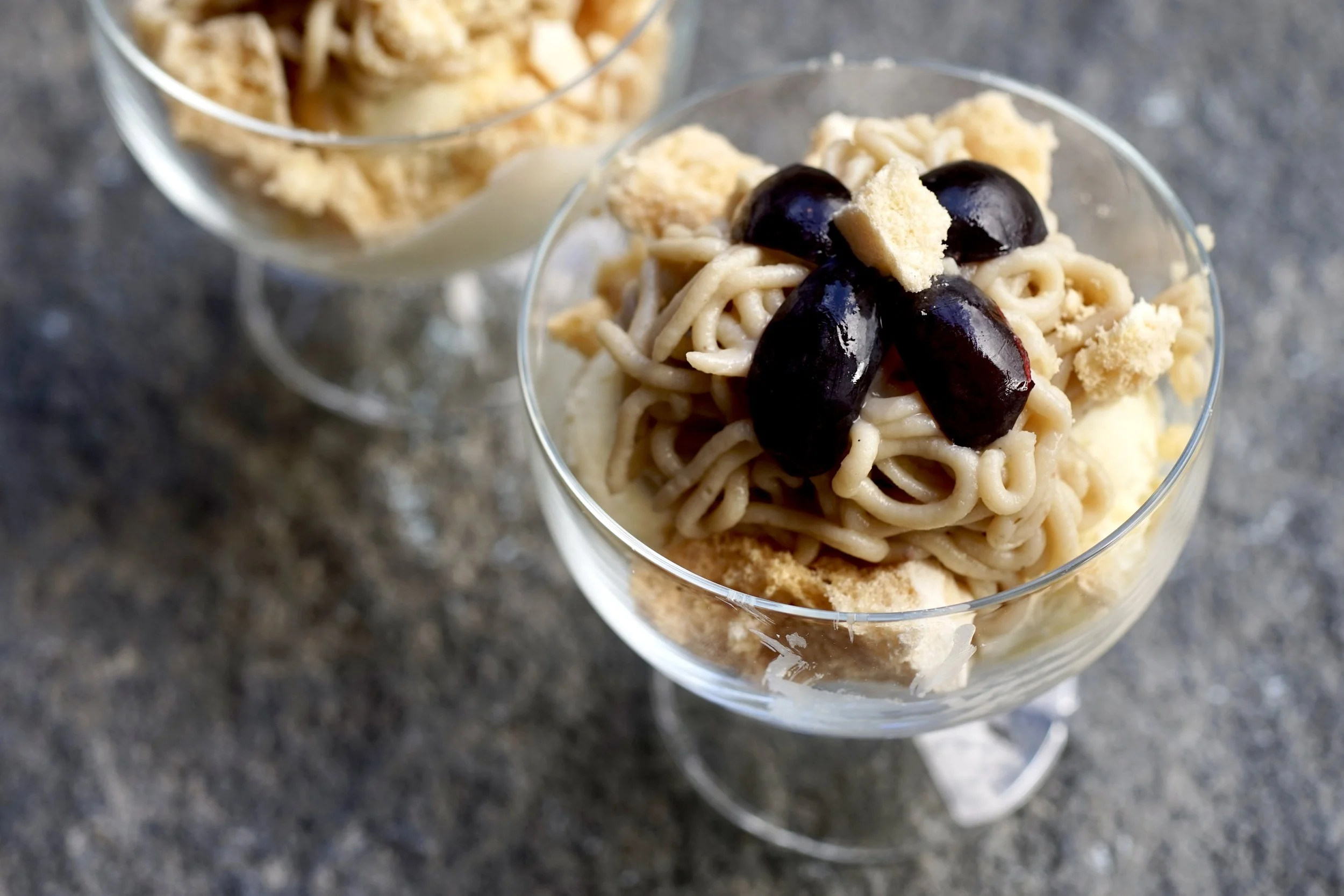Wild
This is Wild.
Wild is the German word for game (as in animals that you can hunt). Autumn is Wild season and restaurants all over Switzerland and central Europe prepare plates that feature game meats and traditional side dishes.
Here's a rundown of what's on a typical Wild plate (see above, though many variations exist):
Spätzli: buttery dumplings, often fried.
Rotkohl: soft and sweet red cabbage with stewed apples and bacon.
Rosenkohl: Brussels sprouts, cooked until tender.
Birnen mit Preiselbeeren: poached pears filled with cranberry sauce.
Glasierte Marroni: glazed, caramelly chestnuts.
Reh or Hirsch (deer) or Gämse (a kind of mountain antelope): meat prepared as Pfeffer, in a thick brown sauce. As the meat is lean and can be tough, it is usually first marinated in wine for a week to ten days, and then cooked low and slow.
It's hard to get actual Swiss game and according to SRF about 3000 tonnes of the 4400 tonnes of game eaten in Switzerland every year are imported from New Zealand, Austria or Slovenia. Hunters are keen to keep the meat to themselves, and really, who can blame them?
This year I wanted to try making all parts of a Wild plate from scratch. Here are the posts detailing all of the separate parts (plus the Coupe Nesselrode for dessert):
Each individual side dish can be enjoyed alone, or in other meals, but here they all come together to make this very special, seasonal whole.
A note on pronunciation: in German, Wild rhymes with willed, but the 'w' is pronounced as a 'v', like 'villed'.













